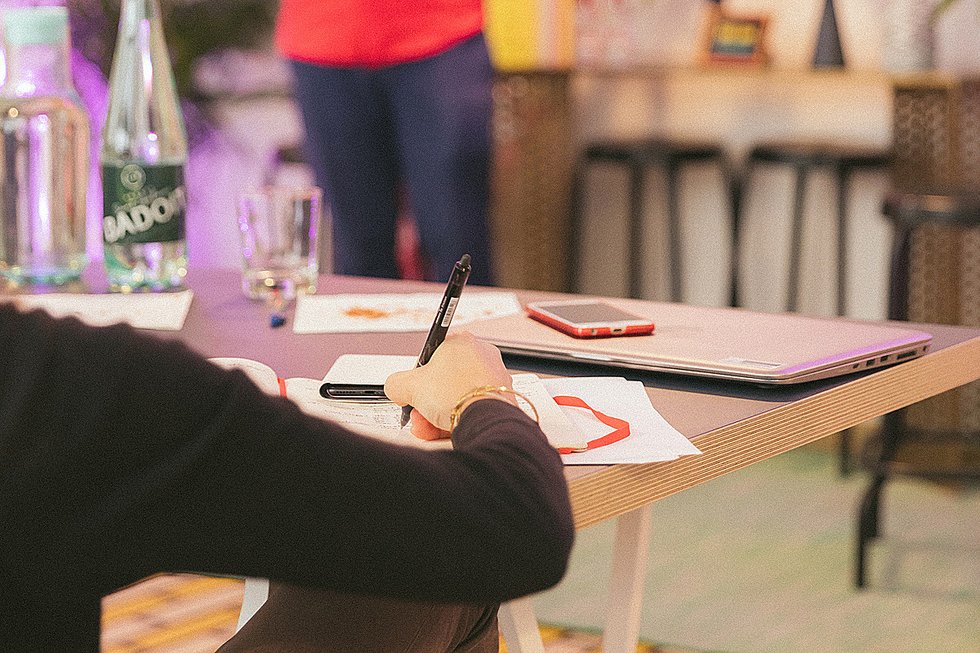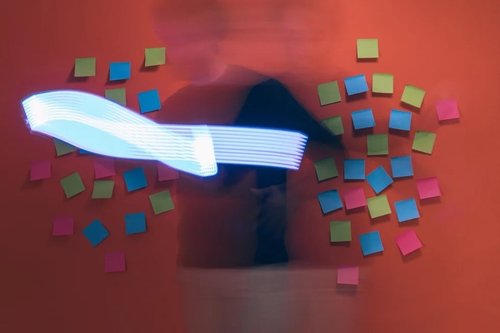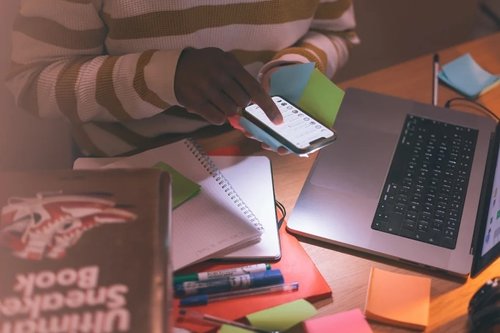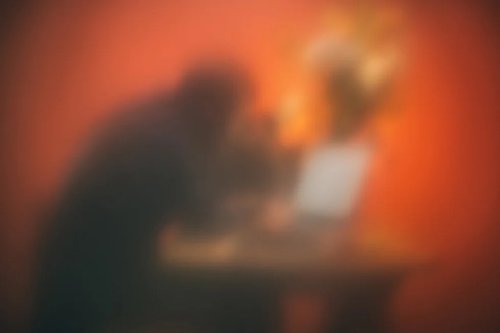Don’t forget a thing! 7 tips to help you take great notes
06 mar 2020
3 min


Journaliste - consultante éditoriale @rubrik-communication.com
A two-hour long morning meeting, lunch with a customer and then a coffee break with your boss at the end of the day. That’s a lot of talking to a lot of people and a whole lot of information to retain. By the next day, you probably can’t remember the half of it. That’s when you think, “Oh, no! If only I had taken some notes.” In fact, making some clear notes could save you from the stress of racking your brain and trying to remember everything that was said. So how do you take notes that are worth keeping?
1. Choose a good seat
If you are going to a meeting or a conference, make sure you get there a little early if you plan to keep a record. You will be able to find a good spot. If it is taking place in a large room, set yourself up so you will be able to see and hear every speaker at all times. This way, following any exchange won’t be too much of a challenge.
2. Select your tool wisely
Decide whether you will use a notepad, a smartphone, a computer or a tablet. The choice is between a digital or traditional method. It’s best to choose the tool that you are most comfortable with, but be aware that digital media have several advantages:
- You will save time if you are supposed to write a report as you won’t have to type out your handwritten notes.
- Digital note-taking also allows you to save and organise your work while you are doing it. In addition it will enable you to retrieve your notes more easily, whereas you are more likely to lose or misplace random sheets of paper.
- Digital notes are also useful when you need to share information and would like other people to contribute. You can find free online software that makes it easy to enter, classify and share information via email, such as Evernote, which is a popular one, Google Keep or Onenote for example.
You might be tempted to use an audio recorder. If you let your colleagues know beforehand and they have no issue with the idea, then why not? It can be invaluable when technical jargon is being used or if you need to go back over specific quotes or excerpts from speeches.
3. Concentrate!
Listening and concentrating are the most important elements for effective note-taking. Simply writing down words and phrases without knowing what they mean is useless, because you won’t be able to use or even transcribe an idea you don’t understand. Instead of hastily writing down everything you hear, wait until you have the gist of the idea and then put it in your own words.
4. Only take down the essentials
Unless you are a stenographer, you can’t write down every single word that you hear. What you can do instead is to note down keywords that make sense and use abbreviations like W for work, ATM for “at the moment” and !! for really important stuff. Have a look at online abbreviation dictionaries to give you some more pointers.
Don’t forget to jot down all the forgettable, but practical, information such as deadlines, people to get hold of, processes and so on.
5. Remember why you are taking notes
In order to work out what level of detail you need to have in your notes, you should determine what you will want to get out of them. Do you have to write a 10-page report? If that’s the case, then you should write down as much as you possibly can. Do you simply need a brief, but precise, summary? Then the more notes you make, the more time you will have to spend going through them. So stick to the point and try to organise your ideas.
6. Structure your notes
Whether you are writing your notes on paper or typing them out on a computer, think about the layout. Create a margin or two for the information that you will need further clarification on, such as names, dates and contact details.
Don’t hesitate to highlight crucial information either. That way it will be easier to find key points when you are going through your notes later.
7. Go through them again as soon as you can
Strike while the iron is hot. As soon as the meeting, interview or conference ends, take a look over your notes and add bits. Go back to the grey areas and try to fill in the gaps. Rewrite anything that is illegible. If you are supposed to write a report, don’t put it off. Your memory is your best ally. The more time goes by, the more tedious it will be to dive back into your notes again.
Effective and efficient note-taking is not complicated. Just make sure you are clear on what is expected of you or what you are going to use the notes for. Don’t forget to prepare and to concentrate as much as possible during interactions. If you are not familiar with this kind of approach, practise. The more experience you get, the more effective and the better you will be at it.
Translated by Mildred Dauvin
Photo: WTTJ
Follow Welcome to the jungle on Facebook to get your daily dose of our best articles.

Más inspiración: Productividad y herramientas

How productive are you, really? Unlocking productivity in the workplace
How does the traditional 8-hour workday measure up to actual productivity levels?
03 abr 2024

Ego depletion: The more decisions you make, the worse they become!
Digital demands and information overload are at an all-time high, making decision fatigue a critical challenge impacting productivity and well-being.
27 mar 2024

Say goodbye to your to-do list and hello to the ‘did’ list
Wave goodbye to the overwhelming to-do list and welcome the empowering 'did' list into your daily routine.
27 mar 2024

Should you secretly use AI at work?
Policies surrounding AI usage at work are becoming more and more popular—but some workers are choosing to ignore them.
19 feb 2024

I tried splitting my day into fun and boring tasks. Here’s what happened…
Some experts suggest balancing enjoyable and difficult tasks is a shortcut to workplace happiness. Here’s how it worked out for our reporter…
28 jun 2023

¿Estás buscando tu próxima oportunidad laboral?
Más de 200.000 candidatos han encontrado trabajo en Welcome to the Jungle
Explorar ofertas